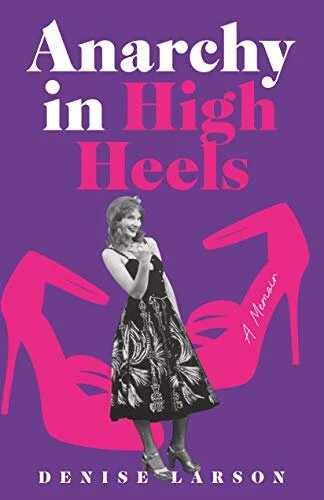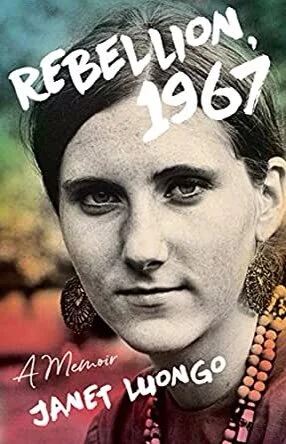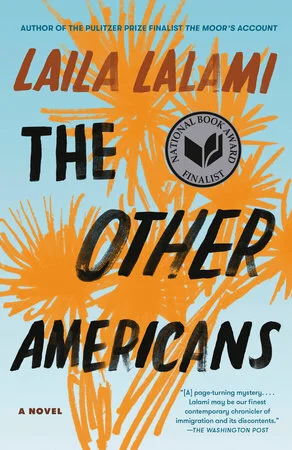Ursula Pike’s debut An Indian Among Los Indigenas follows 25-year-old Ursula during her two year stay in Bolivia as a volunteer with the Peace Corps and poses the question: What does it mean to have experienced the effects of colonialism firsthand, and yet to risk becoming a colonizing force in turn?
Read MoreThe Decolonize This Book Club read Dina-Gilio Whitaker’s As Long as Grass Grows: The Indigenous Fight for Environmental Justice, from Colonization to Standing Rock paired with Joshua Whitehead’s debut poetry collection called full-metal Indigiqueer for our June and July meetings. Together, the two texts ask the question: How do we save the world when the apocalypse has already happened?
Read MoreMalcolm and Me, by Robin Farmer, is a YA/middle-grade historical fiction set in 1973-1974 Philadelphia, following young Roberta Forest in her eighth-grade year at a Catholic high school.
Read MoreThe Black Kids, Christina Hammonds Reed’s debut novel, is a coming-of-age tale set in Los Angeles, 1992, immediately before, during, and after the Rodney King protests.
Read MoreThe Other Americans is about the Guerraoui family, Moroccan immigrants to the Mojave desert, whose patriarch dies after a fatal hit-and-run.
Read MoreFor the March Decolonize This Book Club, we read a collection of essays, Care Work: Dreaming Disability Justice by Leah Lakshmi Piepzna-Samarasinha and Kimiko Does Cancer: A Graphic Memoir by Kimiko Tobimatsu.
Read MoreJacqueline Woodson’s newest book, Before the Ever After, explores the impacts of traumatic brain injuries caused by sports-related concussions on a family and community.
Read MoreSurprise post! Written in Acevedo’s effortless verse, Clap When You Land follows two sisters, separated by hundreds of miles and decades of secrets.
Read MoreLove After the End is a collection of nine short speculative fiction stories written by Indigenous, queer, and Two-Spirit writers and storytellers. The question explored in each story is, as Joshua Whitehead tells us in his introduction, “What does it mean to be Two-Spirit during the apocalypse?”
Read MoreMasood’s novel follows two immigrant families as fundamentalism and nationalism take root seemingly everywhere, pushing families into dire situations, where right and wrong aren’t so simple. The struggle for one’s soul is central to this story. It’s also a love story, a tale about family dynamics, an exploration of Islam from multiple perspectives, and a commentary on American violence.
Read MoreIn January, the Decolonize This Book Club read both Octavia's Brood: Science Fiction Stories from Social Justice Movements and Water Carrier, a collection of poetry by Nakia Hill.
Read MoreI entered In Search of Appalachia with excitement at the prospect of reading about Appalachia by an Appalachian, rather than through the eyes of outsiders, as is so often the case in media, who typically present Appalachia as a backward and dirty place— one characterized by lacking, rather than a destination draped in rich culture. But I left In Search of Appalachia with a furrowed brow, disappointed in the missed opportunity of really grappling with our history as colonizers on the frontier.
Read MoreI opened Eli N. Evans’ book The Provincials: A Personal History of Jews in the South with one question in mind: How does Jewishness intersect with whiteness in America (through the lens of the South)? And I deeply appreciate the complex answer I was given by reading the oft-overlooked history of Jews in the American South, the homeland of Christian evangelism, and battleground between the old and new.
Ultimately, the answer to my question that I discovered in Eli N. Evans’ book was this: White Jews in America perform a balancing act— benefiting from whiteness to protect their families and to achieve prosperity while also taking risks when the opportunity arises to support Black communities.
Read MoreFor the first reads of the Decolonize This Book Club’s second year, we chose Hood Feminism by Mikki Kendall and a collection of poetry by Britteny Black Rose Kapri called Black Queer Hoe.
Read MoreIf our goal is to decolonize, then we must start by learning how colonization works; its patterns could be its downfall.
Read MoreMary Herring Wright (1924-2018) was a Black and Deaf writer and teacher who participated in the Black ASL Project, which researched the linguistic features that make Black ASL recognizable as a distinct variety of American Sign Language. Having attended the North Carolina School for the Colored Deaf and Blind (NCSCDB), Mary was deeply familiar with ‘Raleigh Sign Language’— a distinct North Carolina variety of Black American Sign Language primarily used by Black Deaf signers who has attended segregated schools for the deaf, making her position in the project invaluable. Her memoir, Sounds Like Home, mainly focuses on her school days at NCSCDB.
Read MoreFor the hearing world, talking is the end-all-be-all. But do we really need to talk to communicate? A Quiet Kind of Thunder is a young adult story about Steffi, who is selectively mute, who falls in love with Rhys, a Deaf student at her school. It’s a coming-of-age tale about communication and how we all communicate in different ways. Maybe there is more to life than talk!
Read More

















